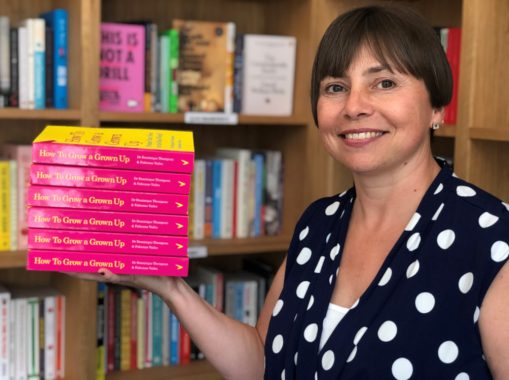How being a GP helps me to understand teenagers

Being a GP on a university campus means being involved in the lives of thousands of teenagers.
It can be funny, fascinating, stressful, sometimes traumatic, and emotionally exhausting.
I’ve looked after thousands of other people’s children in my career, many of them leaving home for the first time, or discovering their self-identity.
Some of them thriving and taking every opportunity, but many struggling and becoming distressed. And in almost 20 years of campus life, I noticed that something was changing – there was a rising tide of student distress, anxiety and mood disorders.
More complex issues were presenting, alongside more difficult family situations and more trauma. For many, there also seemed to be more of a struggle to cope with the pressures and expectations of 21st Century life.
I started to wonder if perhaps I could help in a different way. Not just by reacting to each student, every ten minutes, but by getting ‘upstream’ of the issues, before they arrived at university, by communicating directly with their parents, and the parents of younger teenagers.
There’s no doubt that today’s parents are more involved in their young adults’ healthcare (regularly coming to consultations, or emailing the GP), so I wondered if I could take all the information students were giving me in our consultations, package it up and give it back to parents in book form, to help them to raise future students ready for the challenges of 21st Century life.
I noticed that something was changing – a rising tide of student distress
The book would shine a spotlight on the new pressures of our society (tech, social media, rising academic competition and perfectionism), but also on the darker corners of young people’s minds, whilst sharing advice and strategies of how to support them, and raise them to be independent and able to navigate life’s ups and downs.
I was exploring the idea of this book when I spoke to a university colleague, Fabienne Vailes, who, as a personal tutor, had also noticed a significant rise in young people asking for help and support.
We decided to write the book together, pooling our experience and knowledge to inform and guide the parents of today’s secondary school-age kids.
The process of sitting down to write How to Grow a Grown Up involved capturing years of clinical experience, illustrated by stories of the students I’d always loved looking after, but also much more research than I’d ever imagined, to ensure that all our parenting advice was up to date, relevant and as ‘evidence grounded’ as possible.
It turns out that the hardest part of writing a book isn’t getting offered a publishing deal (which, I’m not going to lie, was obviously amazing!) or meeting tight deadlines, but was in fact cutting a quarter of our carefully-crafted original text, with the help of an amazing editor, to meet the 75,000 word limit.
If you’ve thought about writing a book, and many of us do have such dreams, and if you can’t hold back your inner creative spirit any longer, my advice would be to be absolutely clear about what your ‘message’ or story will be (draft an ‘elevator pitch’), who your audience will be (niche, or wide appeal), then write a sample chapter to attach to a proposal outlining your ideas and vision for the book, and finally, find yourself an agent who ‘gets’ what you’re trying to do.
Your agent will become your closest ally and will ‘pitch you’ to publishers, so they absolutely must understand you and your message. This isn’t, of course the only path to getting published – it’s just the way that worked for me.
Whichever path you choose, self-publishing or with a publishing house, I say give it a shot, and enjoy the writing. That’s what matters most!
Dr Dominique Thompson is the co-author of How to Grow a Grown Up, author of The Student Wellbeing Series, and a former GP in Bristol









